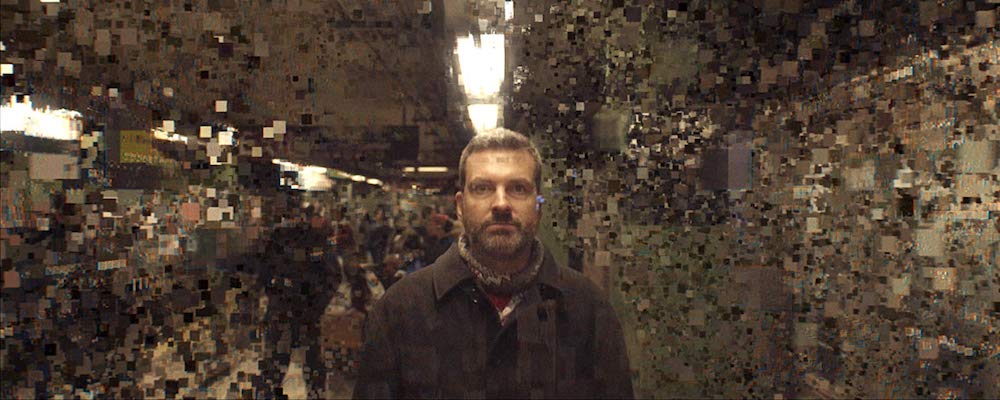‘The Great Hack’ Is a Dense Documentary on Data Rights and Digital Dependence
Andrew Bundy
In a technology driven world it’s relatively simple to manipulate the digital reality of any one individual. Our likes and locations have become a form of information currency, with behaviors being both actively mined and accurately predicted. “The Great Hack” is a restless bombardment on digital rights and technological dependence; a dense and doctrinal documentary that is masterfully paced and well-constructed — if not a little over-ambitious with its thriller-like approach.
Netflix’s new film, directed by Karim Amer and Jehane Noujaim, primarily follows a number of players who were heavily involved in the Cambridge Analytica-Facebook scandal. But “The Great Hack,” is not solely an educational work about shifty data collection and the nightmare that was the 2016 election, it also functions as an enthralling courtroom page-turner. The film suffers slightly from having too many subjects and a wonky order of operations, but all quibbles aside it’s an essential and entertaining movie examining how the dream of interconnectivity drove the world apart.
The opening begins by introducing whistleblower Brittany Kaiser, former Director of Business Development at Cambridge Analytica — the company that collected thousands of data points on every American citizen through Facebook, using them to cater specific ads in order for the Trump campaign to target persuadable voters. In an eerie cold open — that’s effective as a formal storytelling device, but doesn’t have any relevant function for a while — Kaiser is subpoenaed and called in to testify. The film quickly pivots to an intense expositional montage, before settling in on a different subject, David Carroll, Director of the MFA Design and Technology graduate program at Parsons School of Design.
Carroll explains how data mining companies, such as Cambridge Analytica (CA), have been using these strategies for years. It’s digital information theft, and because CA is a UK company, he must pursue legal action across the Atlantic in order to gain access to the voter profile that has been collected on him. Carole Cadwalladr, a reporter and feature writer for Guardian and the Observer, led a year-long investigation that helped break the story about what CA was up to. Cracks in the company revealed themselves further when a man named Christopher Wylie, a former employee, testified that he helped create a “full service propaganda machine” for CA. Like Kaiser, Wylie’s fingerprints were all over the eventual results of several campaign projects. Essentially, they were hired to hack future elections.
Kaiser helped pioneer Barack Obama’s social media brand, when he was running for president in 2008, back when she was a young activist. Later she was approached by a man named Alexander Nix. The now former-CEO of CA was impressed with Kaiser’s work and offered her a job. Eventually, she ended up as a key figure in the Brexit campaign, which is described as “the petri dish for Trump.” What could make such an ideological woman possibly shift her values so much in under a decade? The documentary attempts to answer this without unfairly attacking the woman or playing the blame game. The world may be a lot less private because of her more self-serving impulses, but the film still lets Kaiser tell her side of the story.
Perhaps intentionally, “The Great Hack” is similar to “The Social Network” in some respects. It follows multiple people, threads, and viewpoints, only using talking heads and real deposition footage. It is constantly cutting to the propulsive beat of an always-swelling synth score. The audio almost never lets up between interviews and it can feel like an expository assault — again, possibly the entire point. There are simply too many subjects to focus on and the documentary is lacking a real center. After the intro, our whistleblower disappears for a long time. Carroll vanishes for virtually the whole mid-portion of the film after Kaiser is returned to. Thematically everything is there, and it’s all very engaging, but a more human component feels missing for chunks at a time. Ironically, the film is lacking a core character like the 2010 film’s fictional Mark Zuckerberg.
The movie also makes for an excellent companion piece to Alison Klayman’s haunting Steve Bannon documentary, “The Brink,” released earlier this year. “The Great Hack” is broader and less intimate. Both play well in isolation, but each of them also enhances the other. Amer and Noujaim’s film is almost like a digital heist picture. Pushing political buttons is not unlike designing a casino that attracts gamblers to play at a specific slow machine. Klayman’s documentary follows a greedy floor manager around as he tries to spot the saps who will put their money in the machine only because it looks shiny.
When Brittany Kaiser first walked into Donald Trump’s campaign headquarters, she felt this strange sense of déjà vu; it felt like she’d seen where she was standing before. The reason being, it was the boardroom set from “The Apprentice,” our Commander-in-Chief’s crowning achievement. They filmed reality television in the same place that determined who became President of the United States. In the face of polarity, people turn complacent when they’re running low on convenient stories to believe.
“The Great Hack” is a reminder that we’re living in a time where we must be mindful of all the rights we lose as a result of the various channels we may subscribe to. Boundaries have grown more complicated as platforms are increasingly become personalized. Data doesn’t just evaporate into thin air. Some companies are spending millions a day on ads in order to access all the information floating in the Cloud. Without reading the complete terms of service, how is one to know that every new friend request really just means more chances of being hacked whenever you smash a new subscribe button?
“The Great Hack” releases July 24 on Netflix and in select theaters.

